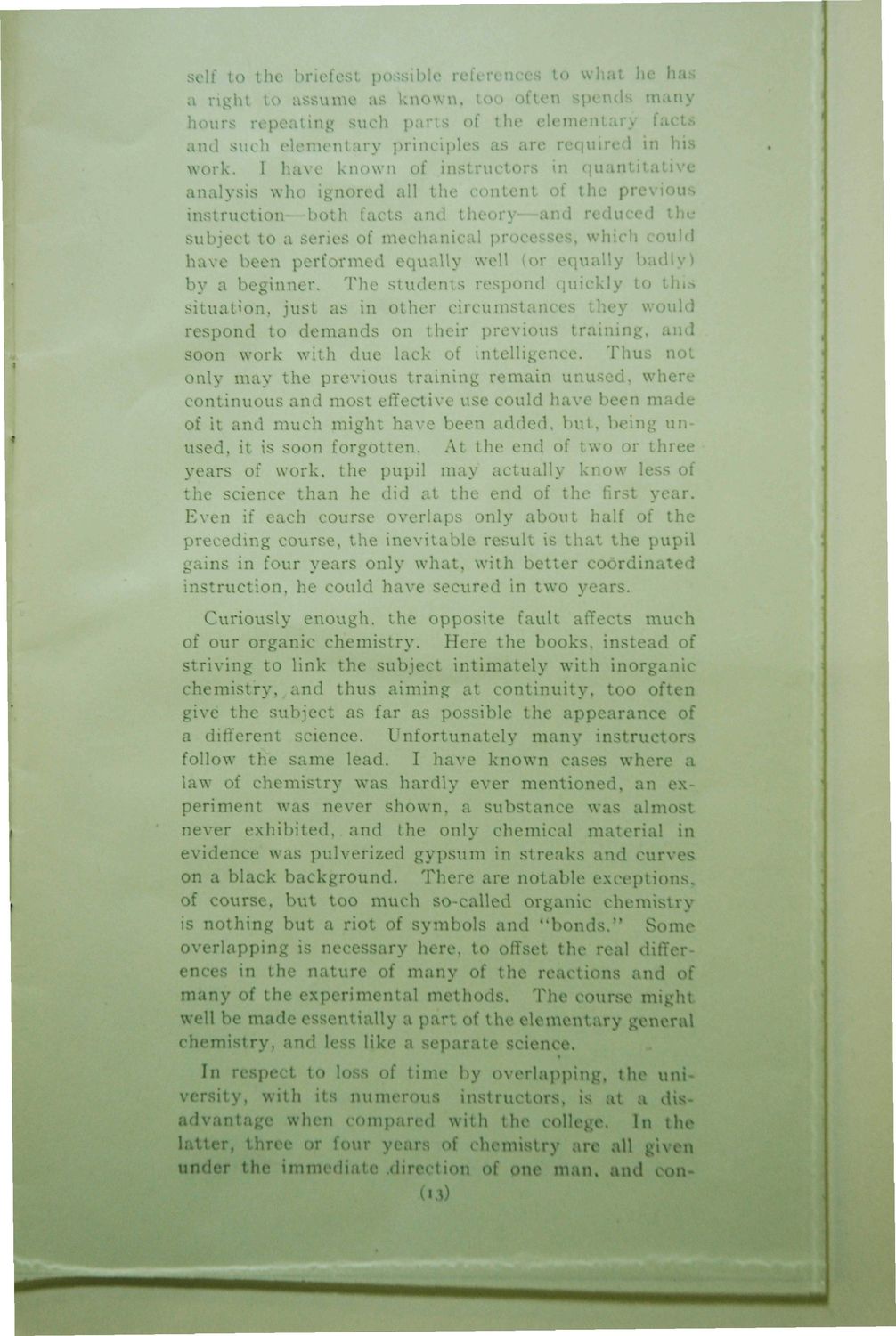| |
| |
Caption: Dedication - New Chemistry Building
This is a reduced-resolution page image for fast online browsing.

EXTRACTED TEXT FROM PAGE:
self to the briefest possible references to what he has a right to assume as known, too often spends many hours repeating such parts of the elementary facts and such elementary principles as are required in his work. I have known of instructors in quantitative analysis who ignored all the content of the previous instruction—both facts and theory—and reduced the subject to a series of mechanical processes, which could have been performed equally well (or equally badly) by a beginner. The students respond quickly to this situation, just as in other circumstances they would respond to demands on their previous training, and soon work with due lack of intelligence. Thus not only may the previous training remain unused, where continuous and most effective use could have been made of it and much might have been added, but, being unused, it is soon forgotten. At the end of two or three years of work, the pupil may actually know less of the science than he did at the end of the first year. Even if each course overlaps only about half of the preceding course, the inevitable result is t h a t the pupil gains in four years only what, with better coordinated instruction, he could have secured in two years. Curiously enough, the opposite fault affects much of our organic chemistry. Here the books, instead of striving to link the subject intimately with inorganic chemistry, t and thus aiming at continuity, too often give the subject as far as possible the appearance of a different science. Unfortunately many instructors follow tfie same lead. I have known cases where a law of chemistry was hardly ever mentioned, an experiment was never shown, a substance was almost never exhibited, and the only chemical material in evidence was pulverized gypsum in streaks and curves on a black background. There are notable exceptions, of course, but too much so-called organic chemistry is nothing but a riot of symbols and "bonds." Some overlapping is necessary here, to offset the real differences in the nature of many of the reactions and of many of the experimental methods. The course might well be made essentially a part of the elementary general chemistry, and less like a separate science. In respect to loss of time by overlapping, the university, with its numerous instructors, is at a disadvantage when compared with the college. In the latter, three or four years of chemistry are all given under the immediate .direction of one man, and con* (13)
| |